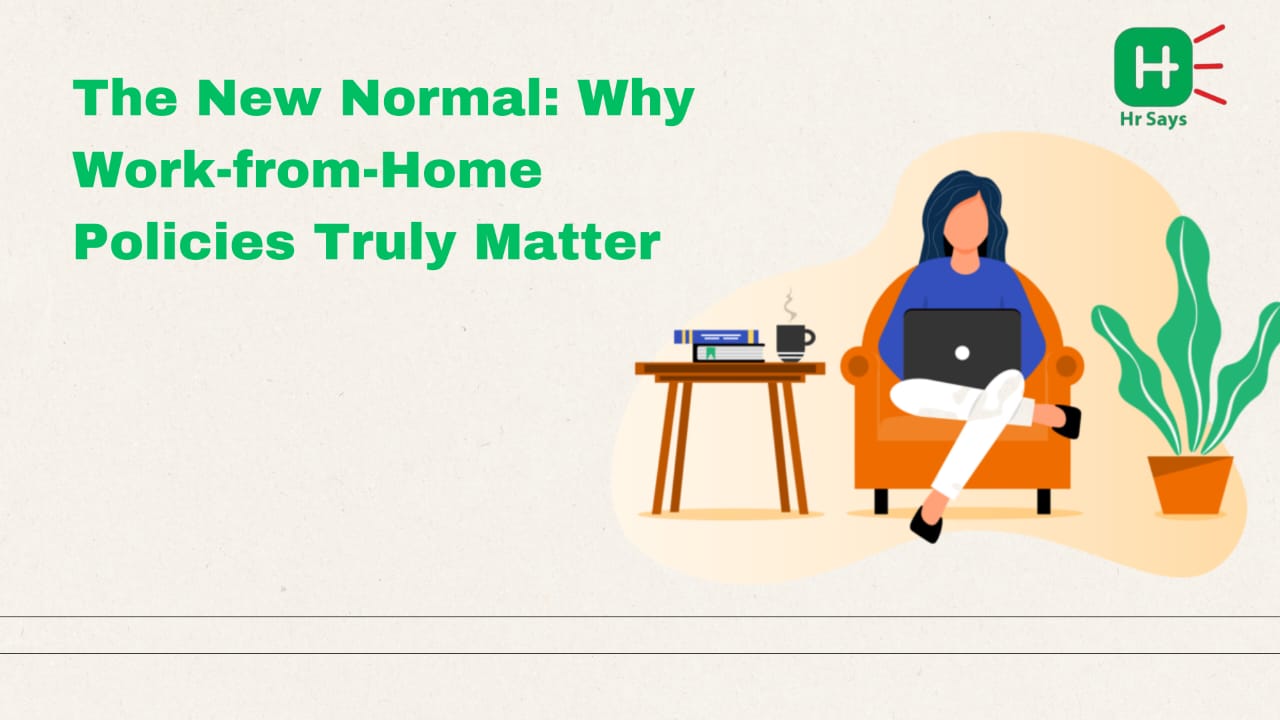Is it possible to work outside of the walls of the office? The contemporary workplace has been modeled around this question. Work-from-home is not optional anymore. They characterize business changes, worker behaviours, and equilibrium.
The Shift Toward Remote Work
There has been a drastic shift in the world of work. Not so long ago, offices were the main component in center, but nowadays flexibility becomes the need. Remote work policy make this possible. They bring order and demystification to something that otherwise could have been confusing.
Why Work-from-Home Policies Are Important
Policies are not just about rules. They set boundaries and expectations. Without them, remote work turns chaotic. With them, employees know what is required and employers know how to measure outcomes.
Setting Clear Expectations
When guidelines are clear, confusion is reduced. Employees understand:
● What hours to follow
● Which tools to use
● How performance will be measured
Supporting Employee Well-being
Policies also protect employee wellness. Remote work can blur personal and professional lines. With rules in place, healthier work patterns are encouraged. Time for rest is preserved.
Building Trust Between Employers and Employees
Trust has always been at the heart of work. Remote policies reinforce it. Employees feel
respected when flexibility is allowed. Employers gain confidence when responsibilities are
fulfilled without micromanagement.
Communication Becomes Key
In remote settings, communication holds everything together. Policies should outline how teams stay connected. Regular check-ins, clear reporting methods, and quick responses form the backbone of trust.
Productivity and Accountability
A common fear is that working from home may lower productivity. With structured policies, the opposite can happen. Productivity can rise because distractions reduce, commute vanishes, and focus improves.
Balancing Accountability
Work-from-home rules should ensure accountability without being overbearing. Tracking tasks instead of hours often works better. This keeps employees engaged rather than pressured.
Long-Term Impact on Work Culture
Remote policies do more than manage the present. They shape the future culture of work. A company that values flexibility and balance attracts talent. A company without clear policies risks losing it.
Preparing for the Future
The workforce is changing. Younger employees often seek hybrid or remote models. Businesses that prepare through strong policies stay relevant. Others fall behind.
Conclusion
Work-from-home is not a passing trend. It is a shift that has redefined how people work and live. Policies act as the framework that supports this shift. When structured with clarity, they bring trust, balance, and lasting productivity.

 Work-from-home policies have become essential in today’s workplace. They provide clarity, support well-being, build trust, and boost productivity. By setting clear rules and expectations, businesses can adapt to change while ensuring employees remain engaged and balanced.
Work-from-home policies have become essential in today’s workplace. They provide clarity, support well-being, build trust, and boost productivity. By setting clear rules and expectations, businesses can adapt to change while ensuring employees remain engaged and balanced.








.jpeg)
.jpeg)

.jpeg)





.jpeg)



.jpeg)

.jpeg)



